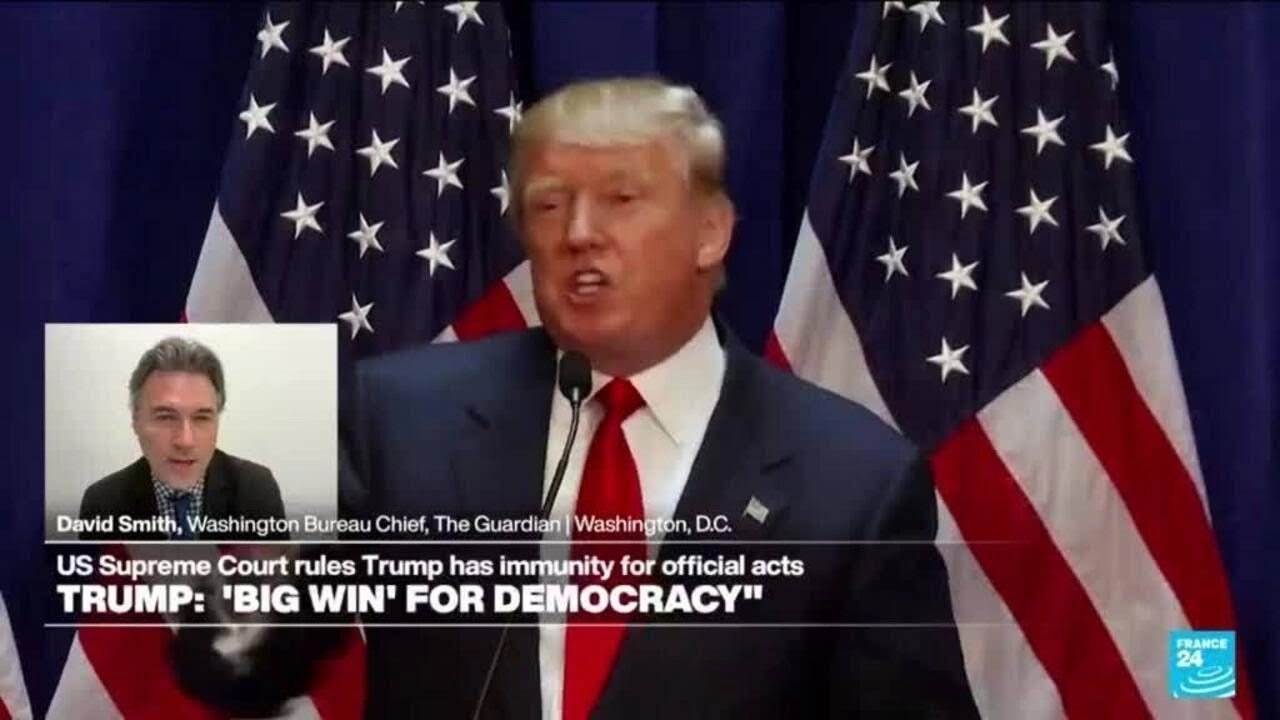The US Supreme Court has ruled in a 6-3 decision that former President Donald Trump has some immunity from prosecution concerning his actions related to the January 6 insurrection. This ruling significantly reduces the likelihood of Trump facing trial before the upcoming presidential election in November. The case has been sent back to a lower court to distinguish between Trump’s official and unofficial acts leading up to January 6. Chief Justice John Roberts stated the decision aims to protect the presidency’s integrity, while the dissenting liberal justices, including Sonia Sotomayor, criticized the ruling for granting excessive powers to the president.
- The Supreme Court’s 6-3 ruling grants Donald Trump partial immunity from prosecution regarding his involvement in the January 6 insurrection.
- The case is sent back to a lower court to determine which of Trump’s actions were official and which were unofficial.
- The ruling effectively diminishes the possibility of Trump standing trial over the January 6 events before the November presidential election.
- Chief Justice John Roberts authored the main ruling, emphasizing the decision’s intent to protect future presidents from prosecution fears that could hinder their duties.
- The three liberal justices, including Sonia Sotomayor, strongly dissented, arguing the decision grants undue power to the presidency.
- The decision has sparked significant discussion and criticism, particularly among Democrats and supporters of Joe Biden.
France 24 is an international television network and news website owned by the French state.
Official website: https://www.france24.com/en/
Original video here.
This summary has been generated by AI.

Leave a Reply